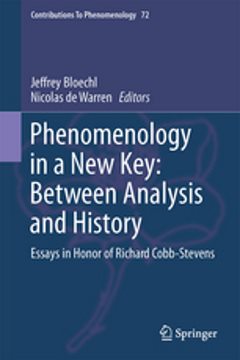From the world to philosophy, and back
pp. 63-92
Abstract
In his very interesting and compelling Husserl and Analytic Philosophy (1990b), Richard Cobb-Stevens argues that what drives phenomenology and analytic philosophy apart is the different interpretation of the connection between predication and perception. While logical analysis since the time of Frege rejects all primacy of the presentational function of perception when it comes to the relation between sense and reference, for Husserl the description of pre-predicative intuition, how we identify particulars through their perceived features, is the indispensable foundation for all articulation in the form of judgment. Since his earliest efforts, Husserl has identified the premise of modern philosophy (the period from British empiricism up to Kant) in the thesis that "mind is a self-enclosed inner space" (Cobb-Stevens 1990b, p. 132). For Husserl, even a statement of perception cannot simply mirror supposedly distinct impressions given in a particular perception and connected—so goes the story for Locke or Hume—by intra-mental processes such as ideas of reflection. Husserl's broadening of the concept of intuition highlights both the surplus of meaning of terms denoting intuitive objects and the universality of formal and categorial dimensions expressed in perceptual statements.
Publication details
Published in:
Bloechl Jeffrey, de Warren Nicolas (2015) Phenomenology in a new key: Essays in honor of Richard Cobb-Stevens. Dordrecht, Springer.
Pages: 63-92
DOI: 10.1007/978-3-319-02018-1_5
Full citation:
Ferrarin Alfredo (2015) „From the world to philosophy, and back“, In: J. Bloechl & N. De Warren (eds.), Phenomenology in a new key, Dordrecht, Springer, 63–92.


